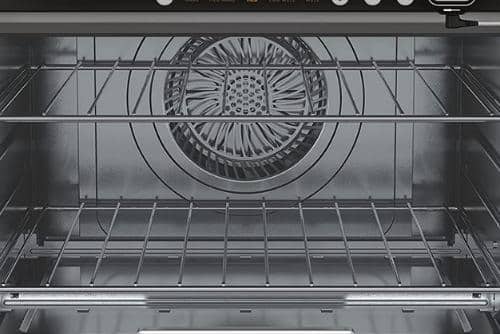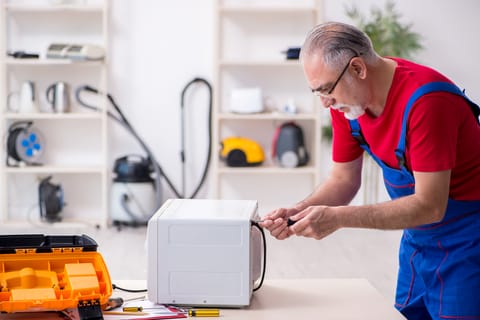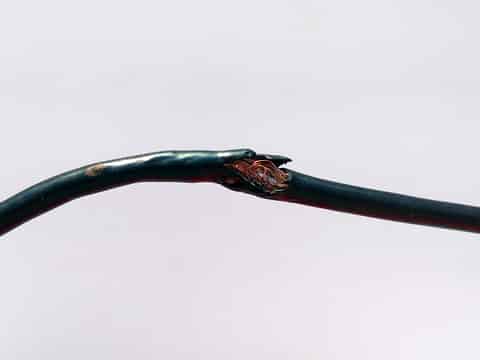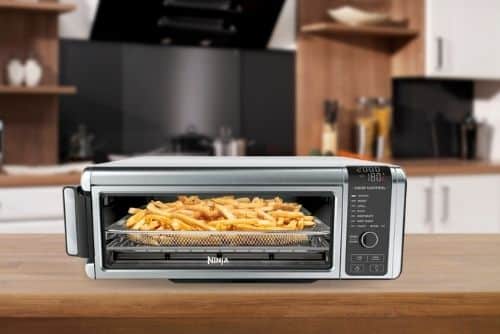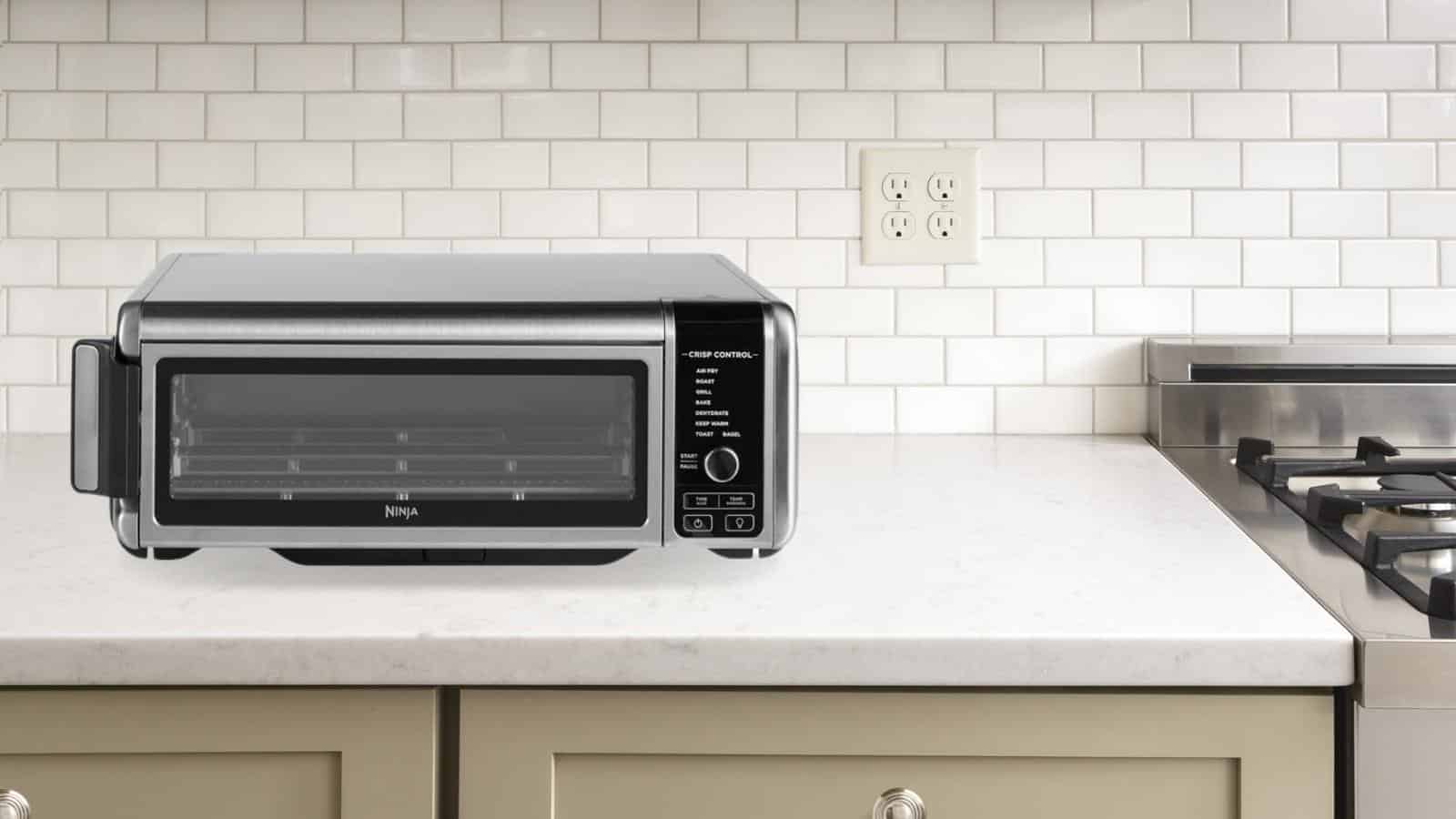
Ovens are one of the handiest kitchen appliances out there. They cook food evenly and at a set temperature, making them excellent for new chefs looking to try easy dishes.
Ovens also offer versatility with cooking modes and a wide range of temperatures, letting you experiment with different recipes. Nowadays, it’s almost essential for any regularly-used kitchen to have an oven.
That being said, not all ovens are built the same, and to get the best cooking experience using an oven, it’s important to buy the appliance from a trusted brand like Ninja Foodi. They offer a wide range of ovens that have improved efficiency and durability.
Newer oven models also carry innovative features and enhanced cooking modes besides baking and broiling.
Sadly, although it’s uncommon, even the best-functioning ovens run into major problems- and Ninja Foodi is no different.
Many users have complained about their oven making a constant noise that’s often loud and unpleasant. This noise may only occur during baking, broiling, or both.
How to Fix Ninja Foodi Oven Making Noise?
Quite a lot of users have found themselves facing the issue of their Ninja Foodi ovens making loud noises while operating.
If you are also facing a similar problem, but are unsure of where it’s coming from or how to troubleshoot it, don’t worry.
Using this article, we will be explaining all the different ways how you can successfully troubleshoot this oven fault. Based on the kind of sound you’re hearing, you can diagnose common issues.
Below, we’ve mentioned every single troubleshooting step is explained in an incredibly easy format so that you have no problem following them. Let’s jump in!
1. Loose Internal Parts
In case you can hear a banging or whirring sound coming from the oven, then it is possible that you have a loose part in the oven. Due to this, you are hearing weird noises coming from the oven whenever it operates.
Another possible reason is that your oven has a warped fan blade. This is typically present at the back. A warped fan will have a distorted shape with bent wings.
Regardless of the reason causing the whirring sound, both of them will require you to repair the machine.
Another important thing to note here is that you might not need to replace the fan of your oven- it could also be that the fan is simply loose which will only require you to tighten it properly.
2. Unclean Oven
As you keep using your oven, it gets dirty over time, even if you don’t make spills. This build-up of food debris, grease, etc can get stuck in places like door latches, where it will jam the door and make it harder to move around. The door can make odd sounds because of this too.
Similarly, dirt might get onto the fans of the oven and get trapped. As a result, whenever you try to run the oven, you may hear noise coming out from the back of the oven
Fortunately, this is an easy fix and the clunking and squeaking sounds can be stopped by simply cleaning the oven. Ensure that you clean the oven thoroughly from the inside.
You can purchase an oven cleaner from your local store or create a DIY one with vinegar and dishwashing liquid diluted in water. Remember- never scrub the inside of the oven harshly with abrasive pads or else you’ll damage the metal plates.
Other than that, it’s also necessary to clean the fans of the oven every couple of months.
3. Loose Body Panels
If you can hear a distinct rattling sound coming from your oven, it’s likely that a body panel is loose. This is a common occurrence especially when you’ve recently performed a repair that required taking out the panels and placing them back together
One such example is a loose back panel- if you wanted to check faults in the wiring and took the panel out, not securing it back down will make a shaky, rattling noise when the oven operates.
Securing body panels is pretty simple. You just need to look for the loose screws in the panel you took out then re-secure them. Remember to check the bottom panel if you moved the oven around as well.
This part of troubleshooting is just for ovens that were recently repaired. If your oven started making this sound out of nowhere, then move on to the next likely culprit.
4. Cooling Fan Malfunction
This is different from the convection fan we talked about before. A cooling fan is typically found at the top of your oven. And as the name suggests, its function is to cool the oven once you turn it off.
When this fan doesn’t work properly, you’ll hear typical malfunctioning sounds like grinding, squeaking, and rattling coming from the top side of the machine.
Cooling fans can get damaged because of the gravitational pull as well as rising food particles. Thorough cleaning and some lubrication can make the fan good as new. Refer to your user manual to discern the right way of reaching this component.
5. Broken Mechanical Timer
This issue is common in older ovens that rely on a mechanical timer. If you purchased a relatively new model, you can skip this part.
As time passes, mechanical timers begin making chirping or whirring noises. This is due to constant exposure to high heat and grease. Unfortunately, as mechanical timers are made of several cogs, cleaning them can be really hard. It’s best to just replace the piece.
6. Electrical Issues
This is a major problem that needs to be addressed quickly. Hearing a constant crackling or loud popping from your oven means the wiring or electric power component has malfunctioned– especially if your food doesn’t explain why you’d hear the popping.
Electrical issues often accompany a burning smell, which means a wire has started to scorch. This is a huge fire hazard. Immediately disconnect all gas and electricity supply from your oven and consult a professional.
7. Motor Issues
If you still can’t seem to fix the issue even after cleaning and following all the repair guides, then you will need to replace the motor of the oven. This should fix any motor-related issue that you were experiencing from the oven and make the device more efficient.
Replacing a convection fan isn’t usually possible, so you’d have to completely replace the motor if the fan breaks down too.
What Normal Sounds To Expect From A Working Oven?
While ovens are generally pretty quiet appliances, if you pay close attention, you’ll notice small noises coming from it. These are totally harmless.
Typically, noises indicate trouble when they’re super loud, or when the food is improperly cooked. In case of failure of oven parts, a strange odor may accompany these sounds
To help you out, we’ve mentioned some sounds you may hear during operation that are completely normal.
- A humming sound that’s generated by the oven’s cooling fan running efficiently.
- A dull hum at the back of the oven. It comes from the power supply to the wiring.
- A hissing sound in gas ovens. It just indicates that the gas is being released. However, do note that it must not appear with the smell of gas. If that happens, immediately shut off the gas supply, open all windows and vents, and call a repairman to inspect possible leakage.
- Loud pops coming from inside of the oven are okay too if they last for a few seconds. It usually happens when a sheet pan or tray is heated up too quickly. Oil and butter also make a popping sound if they come into contact with water or steam.
- Single-click sounds. These come from the working of temperature controls.
The Bottom Line
These are the issues that result in persistent popping, whirring, rattling, and other unpleasant sounds arising from a Ninja Foodi oven. Noticing the kind of sound coming is essential in making an accurate diagnosis.
It’s advised to follow our troubleshooting guide in the steps we’ve mentioned above. Doing so should help resolve the problem in no time at all.

